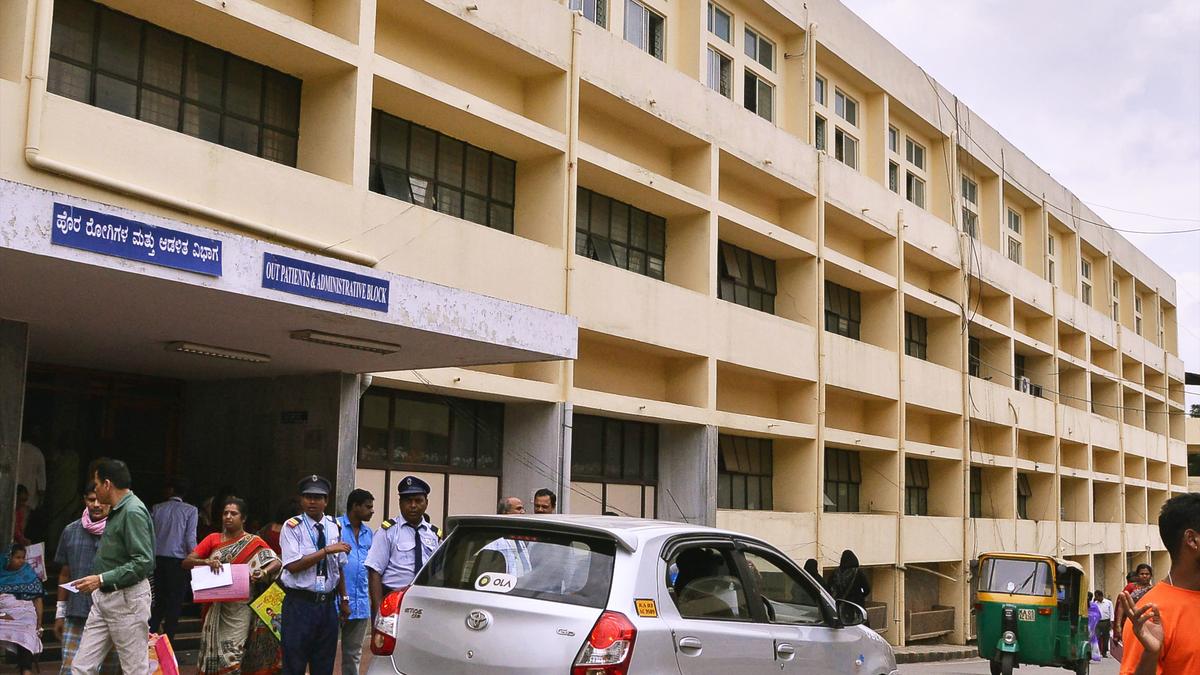
Kidwai reports about 20% of cancer cases in population-based cancer registry of Karnataka
The Hindu
State-run Kidwai Memorial Institute of Oncology reports about 20% of the estimated 86,563 new cases in the population-based cancer registry (PBCR) of Karnataka.
State-run Kidwai Memorial Institute of Oncology reports about 20% of the estimated 86,563 new cases in the population-based cancer registry (PBCR) of Karnataka.
The institute’s hospital-based cancer registry (HBCR) records around 22,000 new cases annually. In 2023, of the 21,608 new cases registered in Kidwai, 12,500 were newly diagnosed cancer cases. To highlight the significance of cancer awareness, early detection, prevention and treatment, November 7 is observed as National Cancer Awareness Day.
Based on the PCBR data, approximately 14 lakh new cancer cases are reported annually in India. Of these, an estimated 86,563 new cases are from Karnataka. About 2.3 lakh cancer cases (including those on treatment and newly diagnosed) can be noticed at any given point of time in the State.
In Bengaluru, of the estimated 14,630 cases registered annually, 7,890 are female cancers. Of the 6,650 male cancers reported, lung cancer continues to be the most predominant site (9.7% of the total male cancers). Lung cancer is followed by cancers of the prostate (6.9%), stomach (6.5%), and mouth (6.4%).
Among females, breast cancer is the most common constituting 31.5% of the total female cancers followed by cancer of the cervix (9.1%), ovary (6.4%), mouth (4.3%), and corpus uteri (4.2%), according to data shared by Kidwai administrator Naveen Bhat Y.
Prashant Mathur, director of the Indian Council of Medical Research – National Centre for Disease Informatics and Research (ICMR–NCDIR) in Bengaluru, who delivered the keynote address at a Continuing Medical Education (CME) workshop and seminar organised by Kidwai to mark National Cancer Awareness Day on Thursday, said cancer registries play a vital role in cancer control programme.
“There is a need to make more PCBRs available in rural areas and functional HBCRs in all medical colleges. A cancer registry will help in understanding the clinical manifestations, designing new treatment protocols and achieving better survival outcomes. It will also facilitate research by medical students,” he said.

According to the historians, the kingdom was marred by internal strife for power. Despite several hurdles, Ahmad Shah I created an environment that attracted scholars from around the world. Besides promoting art and literature, the Mahmud Gawan Madrasa -an educational institution was established during his rule.

It will comprise 24 sessions across two days and host over 70 speakers from around the globe representing diverse aspects of mentoring to “create a vibrant and connected youth mentoring community that drives evidence-based, innovative mentoring models in the country,” as the release puts it. Some key themes that will be addressed include mentoring and educational policy, designing quality mentoring programmes, decoding the global evidence around youth mentoring, innovations in mentoring etc.









